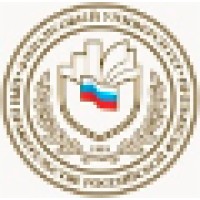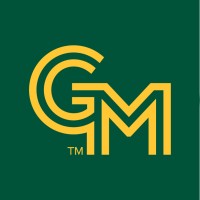
Finance University under the Government of the Russian Federation Company Cyber Security Posture
fa.ruFinancial University is one of the leading Russian institutions of higher learning with more than ninety years’ history. During these years, we have been accumulating and passing on to the new generations our pedagogical, scientific, and organizational experience. Intensity of the educational process, involvement in progressive developments, readiness to embrace large-scale transformations, quick response to changing life challenges and ability to meet them have always distinguished this higher education institution. Having preserved achievements and the best traditions of the Russian and Soviet higher school, we have enriched the educational process by constantly introducing efficient up-to-date educational technologies, thus providing high quality professional training and research work. The Financial University has always been open for cooperation with foreign partners. Today it is a truly international university both in terms of the student body and the nature of its activities, a university which is becoming actively integrated into the European and global educational and research community.
FUGRF Company Details
finance-university-under-the-government-of-the-russian-federation
554 employees
1118
611
Higher Education
fa.ru
Scan still pending
FIN_2590147
In-progress
Between 800 and 900
This score is AI-generated and less favored by cyber insurers, who prefer the TPRM score.
 FUGRF Global Score
FUGRF Global Score.png)

Finance University under the Government of the Russian Federation Company Scoring based on AI Models
| Model Name | Date | Description | Current Score Difference | Score |
|---|---|---|---|---|
| AVERAGE-Industry | 03-12-2025 | This score represents the average cybersecurity rating of companies already scanned within the same industry. It provides a benchmark to compare an individual company's security posture against its industry peers. | N/A | Between 800 and 900 |
Finance University under the Government of the Russian Federation Company Cyber Security News & History
| Entity | Type | Severity | Impact | Seen | Url ID | Details | View |
|---|---|---|---|---|---|---|---|
| Russian government and IT organizations | Cyber Attack | 100 | 5 | 8/2024 | FIN000081524 | Link | |
Rankiteo Explanation : Attack threatening the organization’s existenceDescription: The EastWind campaign involved a series of sophisticated cyberattacks targeting Russian government and IT organizations. The attacks were orchestrated via phishing emails containing RAR archives that led to the installation of malware, including the PlugY and GrewApacha Backdoors. Threat actors exercised control over the malware through Dropbox, allowing them to execute a range of commands and install additional Trojans. The malware was designed to be stealthy and used various techniques, such as DLL sideloading and encrypted payloads, to avoid detection while carrying out espionage activities. The ramifications of the attack included potential access to sensitive government and IT infrastructures, leading to a significant breach of security and the potential compromise of critical data. | |||||||
Finance University under the Government of the Russian Federation Company Subsidiaries

Financial University is one of the leading Russian institutions of higher learning with more than ninety years’ history. During these years, we have been accumulating and passing on to the new generations our pedagogical, scientific, and organizational experience. Intensity of the educational process, involvement in progressive developments, readiness to embrace large-scale transformations, quick response to changing life challenges and ability to meet them have always distinguished this higher education institution. Having preserved achievements and the best traditions of the Russian and Soviet higher school, we have enriched the educational process by constantly introducing efficient up-to-date educational technologies, thus providing high quality professional training and research work. The Financial University has always been open for cooperation with foreign partners. Today it is a truly international university both in terms of the student body and the nature of its activities, a university which is becoming actively integrated into the European and global educational and research community.
Access Data Using Our API

Get company history
.png)
FUGRF Cyber Security News
Russia’s Shadow War Against the West
Russia is conducting a violent and escalating campaign of sabotage and subversion against European and U.S. targets in Europe led by Russian ...
Top 7 Cyber Attacks in the United States
Learn about major cyber attacks in the United States, affected sectors, prevention measures, and how SentinelOne enhances cybersecurity.
Cybersecurity, government experts are aghast at security failures in DOGE takeover
Elon Musk's takeover of key systems across the government is ignoring decades of laws, regulations and procedures, experts told CyberScoop.
America First Investment Policy
The United States will continue to welcome and encourage passive investments from all foreign persons. These include non-controlling stakes and shares with no ...
Italy faces Russian ideologically driven cyber attacks
The pro-Russian hacker group NoName057(16) has launched DDoS assaults on Italian websites as part of a broader hybrid campaign aimed at destabilising Italy.
Russia and China Are Using Cyber Criminals to Target US: Microsoft
A Microsoft report reveals how Russia, China, and Iran are enlisting criminal networks for cyberespionage against hostile states.
Internal feud rages over unvetted DOGE access to federal IT systems
DOGE employees are said to be being provided unprecedented access without proper security clearances and vetting to the IT systems of the Departments of ...
Finding security in digital public infrastructure
This issue brief examines the potential opportunities and risks of DPI across digital trust, data privacy, and cybersecurity and resilience.
Elon Musk and DOGE are hacking the government
Elon Musk and DOGE are hacking the government. Musk has moved with lightning speed to try to remake the federal government. Many Democrats and ...

FUGRF Similar Companies

University of Missouri System
The University of Missouri System has provided teaching, research and service to Missouri and the nation since 1839. The university was the first publicly supported institution of higher education established in the Louisiana Purchase territory. Its philosophy of education was shaped in accordance w

University of Wisconsin-Madison
In achievement and prestige, the University of Wisconsin–Madison has long been recognized as one of America's great universities. A public, land-grant institution, UW–Madison offers a complete spectrum of liberal arts studies, professional programs and student activities. Spanning 936 acres along th

George Mason University
George Mason University is Virginia’s largest and most diverse public research university. Located near Washington, D.C., Mason enrolls more than 40,000 students from 130 countries and 50 states, and has a residential population of more than 6,000 students. Mason has grown rapidly over the past half

University of Sydney
As the first university to be established in Australasia, the University of Sydney consistently ranks as one of Australia’s top universities. We aim to create and sustain a university that will, for the benefit of both Australia and the wider world, maximise the potential of the brightest researcher

Arizona State University
ASU has developed a new model for the American research university, creating an institution committed to excellence, access and impact — the New American University. Nationally and internationally acclaimed, ASU ranks among the very best in nearly every critical measurement of student success, out

University of Delaware
The University of Delaware - a state assisted, privately chartered institution - is a Land Grant, Sea Grant, Space Grant and Carnegie Research University (very high research activity). The University, with origins in 1743, was chartered by the State of Delaware in 1833. A Women's College was opened

Frequently Asked Questions (FAQ) on Cybersecurity Incidents
FUGRF CyberSecurity History Information
Total Incidents: According to Rankiteo, FUGRF has faced 1 incidents in the past.
Incident Types: The types of cybersecurity incidents that have occurred include ['Cyber Attack'].
Total Financial Loss: The total financial loss from these incidents is estimated to be {total_financial_loss}.
Cybersecurity Posture: The company's overall cybersecurity posture is described as Financial University is one of the leading Russian institutions of higher learning with more than ninety years’ history. During these years, we have been accumulating and passing on to the new generations our pedagogical, scientific, and organizational experience. Intensity of the educational process, involvement in progressive developments, readiness to embrace large-scale transformations, quick response to changing life challenges and ability to meet them have always distinguished this higher education institution. Having preserved achievements and the best traditions of the Russian and Soviet higher school, we have enriched the educational process by constantly introducing efficient up-to-date educational technologies, thus providing high quality professional training and research work. The Financial University has always been open for cooperation with foreign partners. Today it is a truly international university both in terms of the student body and the nature of its activities, a university which is becoming actively integrated into the European and global educational and research community..
Detection and Response: The company detects and responds to cybersecurity incidents through {description_of_detection_and_response_process}.
Incident Details
Incident 1: Ransomware Attack
Title: {Incident_Title}
Description: {Brief_description_of_the_incident}
Date Detected: {Detection_Date}
Date Publicly Disclosed: {Disclosure_Date}
Date Resolved: {Resolution_Date}
Type: {Type_of_Attack}
Attack Vector: {Attack_Vector}
Vulnerability Exploited: {Vulnerability}
Threat Actor: {Threat_Actor}
Motivation: {Motivation}
Incident 2: Data Breach
Title: {Incident_Title}
Description: {Brief_description_of_the_incident}
Date Detected: {Detection_Date}
Date Publicly Disclosed: {Disclosure_Date}
Date Resolved: {Resolution_Date}
Type: {Type_of_Attack}
Attack Vector: {Attack_Vector}
Vulnerability Exploited: {Vulnerability}
Threat Actor: {Threat_Actor}
Motivation: {Motivation}
Common Attack Types: As of now, the company has not encountered any reported incidents involving common cyberattacks.
Identification of Attack Vectors: The company identifies the attack vectors used in incidents through {description_of_identification_process}.
Impact of the Incidents
Incident 1: Ransomware Attack
Financial Loss: {Financial_Loss}
Data Compromised: {Data_Compromised}
Systems Affected: {Systems_Affected}
Downtime: {Downtime}
Operational Impact: {Operational_Impact}
Conversion Rate Impact: {Conversion_Rate_Impact}
Revenue Loss: {Revenue_Loss}
Customer Complaints: {Customer_Complaints}
Brand Reputation Impact: {Brand_Reputation_Impact}
Legal Liabilities: {Legal_Liabilities}
Identity Theft Risk: {Identity_Theft_Risk}
Payment Information Risk: {Payment_Information_Risk}
Incident 2: Data Breach
Financial Loss: {Financial_Loss}
Data Compromised: {Data_Compromised}
Systems Affected: {Systems_Affected}
Downtime: {Downtime}
Operational Impact: {Operational_Impact}
Conversion Rate Impact: {Conversion_Rate_Impact}
Revenue Loss: {Revenue_Loss}
Customer Complaints: {Customer_Complaints}
Brand Reputation Impact: {Brand_Reputation_Impact}
Legal Liabilities: {Legal_Liabilities}
Identity Theft Risk: {Identity_Theft_Risk}
Payment Information Risk: {Payment_Information_Risk}
Average Financial Loss: The average financial loss per incident is {average_financial_loss}.
Commonly Compromised Data Types: The types of data most commonly compromised in incidents are {list_of_commonly_compromised_data_types}.
Incident 1: Ransomware Attack
Entity Name: {Entity_Name}
Entity Type: {Entity_Type}
Industry: {Industry}
Location: {Location}
Size: {Size}
Customers Affected: {Customers_Affected}
Incident 2: Data Breach
Entity Name: {Entity_Name}
Entity Type: {Entity_Type}
Industry: {Industry}
Location: {Location}
Size: {Size}
Customers Affected: {Customers_Affected}
Response to the Incidents
Incident 1: Ransomware Attack
Incident Response Plan Activated: {Yes/No}
Third Party Assistance: {Yes/No}
Law Enforcement Notified: {Yes/No}
Containment Measures: {Containment_Measures}
Remediation Measures: {Remediation_Measures}
Recovery Measures: {Recovery_Measures}
Communication Strategy: {Communication_Strategy}
Adaptive Behavioral WAF: {Adaptive_Behavioral_WAF}
On-Demand Scrubbing Services: {On_Demand_Scrubbing_Services}
Network Segmentation: {Network_Segmentation}
Enhanced Monitoring: {Enhanced_Monitoring}
Incident 2: Data Breach
Incident Response Plan Activated: {Yes/No}
Third Party Assistance: {Yes/No}
Law Enforcement Notified: {Yes/No}
Containment Measures: {Containment_Measures}
Remediation Measures: {Remediation_Measures}
Recovery Measures: {Recovery_Measures}
Communication Strategy: {Communication_Strategy}
Adaptive Behavioral WAF: {Adaptive_Behavioral_WAF}
On-Demand Scrubbing Services: {On_Demand_Scrubbing_Services}
Network Segmentation: {Network_Segmentation}
Enhanced Monitoring: {Enhanced_Monitoring}
Incident Response Plan: The company's incident response plan is described as {description_of_incident_response_plan}.
Third-Party Assistance: The company involves third-party assistance in incident response through {description_of_third_party_involvement}.
Data Breach Information
Incident 2: Data Breach
Type of Data Compromised: {Type_of_Data}
Number of Records Exposed: {Number_of_Records}
Sensitivity of Data: {Sensitivity_of_Data}
Data Exfiltration: {Yes/No}
Data Encryption: {Yes/No}
File Types Exposed: {File_Types}
Personally Identifiable Information: {Yes/No}
Prevention of Data Exfiltration: The company takes the following measures to prevent data exfiltration: {description_of_prevention_measures}.
Handling of PII Incidents: The company handles incidents involving personally identifiable information (PII) through {description_of_handling_process}.
Ransomware Information
Incident 1: Ransomware Attack
Ransom Demanded: {Ransom_Amount}
Ransom Paid: {Ransom_Paid}
Ransomware Strain: {Ransomware_Strain}
Data Encryption: {Yes/No}
Data Exfiltration: {Yes/No}
Ransom Payment Policy: The company's policy on paying ransoms in ransomware incidents is described as {description_of_ransom_payment_policy}.
Data Recovery from Ransomware: The company recovers data encrypted by ransomware through {description_of_data_recovery_process}.
Regulatory Compliance
Incident 1: Ransomware Attack
Regulations Violated: {Regulations_Violated}
Fines Imposed: {Fines_Imposed}
Legal Actions: {Legal_Actions}
Regulatory Notifications: {Regulatory_Notifications}
Incident 2: Data Breach
Regulations Violated: {Regulations_Violated}
Fines Imposed: {Fines_Imposed}
Legal Actions: {Legal_Actions}
Regulatory Notifications: {Regulatory_Notifications}
Regulatory Frameworks: The company complies with the following regulatory frameworks regarding cybersecurity: {list_of_regulatory_frameworks}.
Ensuring Regulatory Compliance: The company ensures compliance with regulatory requirements through {description_of_compliance_measures}.
Lessons Learned and Recommendations
Incident 1: Ransomware Attack
Lessons Learned: {Lessons_Learned}
Incident 2: Data Breach
Lessons Learned: {Lessons_Learned}
Incident 1: Ransomware Attack
Recommendations: {Recommendations}
Incident 2: Data Breach
Recommendations: {Recommendations}
Key Lessons Learned: The key lessons learned from past incidents are {list_of_key_lessons_learned}.
Implemented Recommendations: The company has implemented the following recommendations to improve cybersecurity: {list_of_implemented_recommendations}.
References
Additional Resources: Stakeholders can find additional resources on cybersecurity best practices at {list_of_additional_resources}.
Investigation Status
Incident 1: Ransomware Attack
Investigation Status: {Investigation_Status}
Incident 2: Data Breach
Investigation Status: {Investigation_Status}
Communication of Investigation Status: The company communicates the status of incident investigations to stakeholders through {description_of_communication_process}.
Stakeholder and Customer Advisories
Incident 1: Ransomware Attack
Stakeholder Advisories: {Stakeholder_Advisories}
Customer Advisories: {Customer_Advisories}
Incident 2: Data Breach
Stakeholder Advisories: {Stakeholder_Advisories}
Customer Advisories: {Customer_Advisories}
Advisories Provided: The company provides the following advisories to stakeholders and customers following an incident: {description_of_advisories_provided}.
Initial Access Broker
Incident 1: Ransomware Attack
Entry Point: {Entry_Point}
Reconnaissance Period: {Reconnaissance_Period}
Backdoors Established: {Backdoors_Established}
High Value Targets: {High_Value_Targets}
Data Sold on Dark Web: {Yes/No}
Incident 2: Data Breach
Entry Point: {Entry_Point}
Reconnaissance Period: {Reconnaissance_Period}
Backdoors Established: {Backdoors_Established}
High Value Targets: {High_Value_Targets}
Data Sold on Dark Web: {Yes/No}
Monitoring and Mitigation of Initial Access Brokers: The company monitors and mitigates the activities of initial access brokers through {description_of_monitoring_and_mitigation_measures}.
Post-Incident Analysis
Incident 1: Ransomware Attack
Root Causes: {Root_Causes}
Corrective Actions: {Corrective_Actions}
Incident 2: Data Breach
Root Causes: {Root_Causes}
Corrective Actions: {Corrective_Actions}
Post-Incident Analysis Process: The company's process for conducting post-incident analysis is described as {description_of_post_incident_analysis_process}.
Corrective Actions Taken: The company has taken the following corrective actions based on post-incident analysis: {list_of_corrective_actions_taken}.
Additional Questions
General Information
Ransom Payment History: The company has {paid/not_paid} ransoms in the past.
Last Ransom Demanded: The amount of the last ransom demanded was {last_ransom_amount}.
Last Attacking Group: The attacking group in the last incident was {last_attacking_group}.
Incident Details
Most Recent Incident Detected: The most recent incident detected was on {most_recent_incident_detected_date}.
Most Recent Incident Publicly Disclosed: The most recent incident publicly disclosed was on {most_recent_incident_publicly_disclosed_date}.
Most Recent Incident Resolved: The most recent incident resolved was on {most_recent_incident_resolved_date}.
Impact of the Incidents
Highest Financial Loss: The highest financial loss from an incident was {highest_financial_loss}.
Most Significant Data Compromised: The most significant data compromised in an incident was {most_significant_data_compromised}.
Most Significant System Affected: The most significant system affected in an incident was {most_significant_system_affected}.
Response to the Incidents
Third-Party Assistance in Most Recent Incident: The third-party assistance involved in the most recent incident was {third_party_assistance_in_most_recent_incident}.
Containment Measures in Most Recent Incident: The containment measures taken in the most recent incident were {containment_measures_in_most_recent_incident}.
Data Breach Information
Most Sensitive Data Compromised: The most sensitive data compromised in a breach was {most_sensitive_data_compromised}.
Number of Records Exposed: The number of records exposed in the most significant breach was {number_of_records_exposed}.
Ransomware Information
Highest Ransom Demanded: The highest ransom demanded in a ransomware incident was {highest_ransom_demanded}.
Highest Ransom Paid: The highest ransom paid in a ransomware incident was {highest_ransom_paid}.
Regulatory Compliance
Highest Fine Imposed: The highest fine imposed for a regulatory violation was {highest_fine_imposed}.
Most Significant Legal Action: The most significant legal action taken for a regulatory violation was {most_significant_legal_action}.
Lessons Learned and Recommendations
Most Significant Lesson Learned: The most significant lesson learned from past incidents was {most_significant_lesson_learned}.
Most Significant Recommendation Implemented: The most significant recommendation implemented to improve cybersecurity was {most_significant_recommendation_implemented}.
References
Most Recent Source: The most recent source of information about an incident is {most_recent_source}.
Most Recent URL for Additional Resources: The most recent URL for additional resources on cybersecurity best practices is {most_recent_url}.
Investigation Status
Current Status of Most Recent Investigation: The current status of the most recent investigation is {current_status_of_most_recent_investigation}.
Stakeholder and Customer Advisories
Most Recent Stakeholder Advisory: The most recent stakeholder advisory issued was {most_recent_stakeholder_advisory}.
Most Recent Customer Advisory: The most recent customer advisory issued was {most_recent_customer_advisory}.
Initial Access Broker
Most Recent Entry Point: The most recent entry point used by an initial access broker was {most_recent_entry_point}.
Most Recent Reconnaissance Period: The most recent reconnaissance period for an incident was {most_recent_reconnaissance_period}.
Post-Incident Analysis
Most Significant Root Cause: The most significant root cause identified in post-incident analysis was {most_significant_root_cause}.
Most Significant Corrective Action: The most significant corrective action taken based on post-incident analysis was {most_significant_corrective_action}.
What Do We Measure?
















Every week, Rankiteo analyzes billions of signals to give organizations a sharper, faster view of emerging risks. With deeper, more actionable intelligence at their fingertips, security teams can outpace threat actors, respond instantly to Zero-Day attacks, and dramatically shrink their risk exposure window.
These are some of the factors we use to calculate the overall score:
Identify exposed access points, detect misconfigured SSL certificates, and uncover vulnerabilities across the network infrastructure.
Gain visibility into the software components used within an organization to detect vulnerabilities, manage risk, and ensure supply chain security.
Monitor and manage all IT assets and their configurations to ensure accurate, real-time visibility across the company's technology environment.
Leverage real-time insights on active threats, malware campaigns, and emerging vulnerabilities to proactively defend against evolving cyberattacks.




